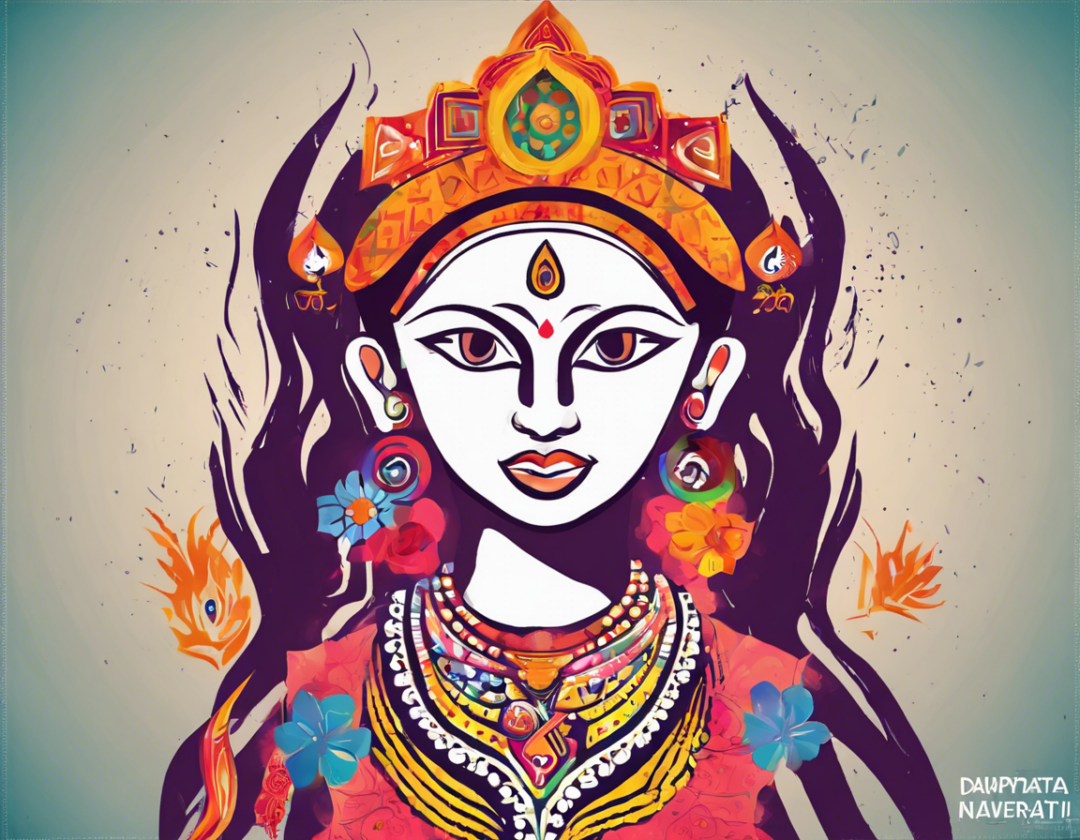Gupt Navratri 2024: Significance and Celebrations

Gupt Navratri, also known as Ashada Navratri, is a significant Hindu festival celebrated over nine days in the month of Ashada (June-July) according to the Hindu calendar. It is observed with great devotion and fervor by Hindus in various parts of India. While most people are familiar with the popular Chaitra and Sharad Navratri, Gupt Navratri holds its unique importance and rituals.
Significance of Gupt Navratri
Gupt Navratri is considered an auspicious time for performing spiritual practices, penance, and seeking the blessings of the Goddess Durga. The word “Gupt” means secret or hidden, signifying the importance of this Navratri for personal introspection, meditation, and seeking divine guidance silently. It is believed that during these nine days, the Goddess descends to Earth to bless her devotees and fulfill their wishes.
Celebrations of Gupt Navratri
During Gupt Navratri, devotees observe fasts, recite prayers, and perform special rituals to seek blessings for health, happiness, and prosperity. The festival is celebrated with great enthusiasm, and each day is dedicated to a specific form of the Goddess Durga.
Day-wise rituals during Gupt Navratri:
Day 1:
The first day is dedicated to Shailputri, the daughter of the mountains. Devotees worship her with flowers, fruits, and incense sticks to seek her blessings for strength and stability.
Day 2:
The second day is dedicated to Brahmacharini, the goddess of penance and wisdom. Devotees fast and offer prayers for self-control and prosperity.
Day 3:
The third day is dedicated to Chandraghanta, the goddess of peace and serenity. It is believed that she brings good fortune and drives away negative energies.
Day 4:
The fourth day is dedicated to Kushmanda, the goddess of creativity and fertility. Devotees seek her blessings for prosperity and success in endeavors.
Day 5:
The fifth day is dedicated to Skandamata, the mother of Skanda (Lord Kartikeya). Devotees worship her for the well-being of children and family.
Day 6:
The sixth day is dedicated to Katyayani, the warrior goddess known for her courage and victory over evil. Devotees seek her blessings for strength and protection.
Day 7:
The seventh day is dedicated to Kaalratri, the fierce form of Durga who destroys ignorance and darkness. Devotees pray to her for courage and fearlessness.
Day 8:
The eighth day is dedicated to Maha Gauri, the goddess of purity and serenity. Devotees seek her blessings for peace and harmony in life.
Day 9:
The ninth day is dedicated to Siddhidatri, the provider of spiritual and material attainments. Devotees offer prayers for fulfillment of their wishes and blessings for a prosperous life.
Frequently Asked Questions (FAQs)
Q1: How is Gupt Navratri different from Chaitra and Sharad Navratri?
A1: Gupt Navratri is observed secretly or silently with more emphasis on personal introspection and meditation, while Chaitra and Sharad Navratri are celebrated more publicly with elaborate rituals and festivities.
Q2: Can anyone observe fasts during Gupt Navratri?
A2: Yes, anyone can observe fasts during Gupt Navratri, but pregnant women, elderly, and those with health issues should consult a doctor before fasting.
Q3: What are some common foods consumed during Gupt Navratri fasting?
A3: Some common foods consumed during Gupt Navratri fasting include fruits, dairy products, water chestnut flour (singhare ka atta), and rock salt.
Q4: Is it necessary to perform elaborate rituals during Gupt Navratri?
A4: While performing rituals adds to the spiritual experience, the most important aspect of Gupt Navratri is sincere devotion, meditation, and seeking blessings of the Goddess.
Q5: What is the significance of offering red flowers during Gupt Navratri?
A5: Red flowers symbolize strength and courage, and offering them to the Goddess during Gupt Navratri signifies seeking her blessings for these qualities.
In conclusion, Gupt Navratri holds a special place in the hearts of devotees who seek divine blessings, guidance, and fulfillment of their wishes during these auspicious nine days. By observing fasts, reciting prayers, and performing rituals silently, devotees connect with the divine energy of the Goddess Durga and experience spiritual growth and inner peace.








